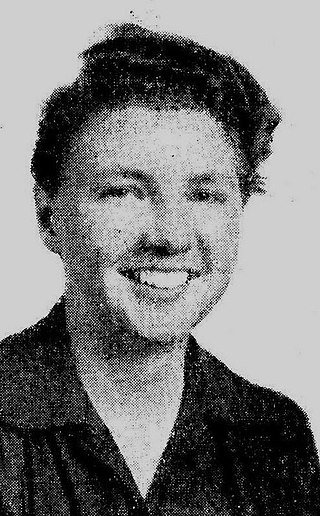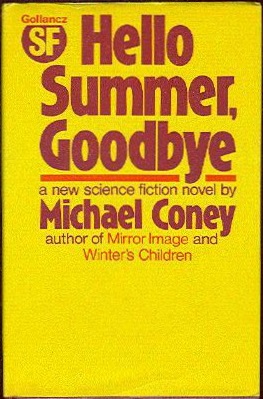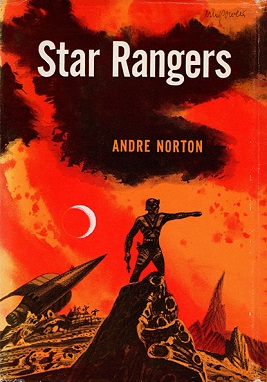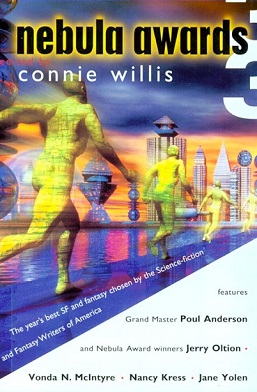
Brian Wilson Aldiss was an English writer, artist and anthology editor, best known for science fiction novels and short stories. His byline reads either Brian W. Aldiss or simply Brian Aldiss, except for occasional pseudonyms during the mid-1960s.

Leigh Douglass Brackett was an American science fiction writer known as "the Queen of Space Opera." She was also a screenwriter, known for The Big Sleep (1946), Rio Bravo (1959), and The Long Goodbye (1973). She worked on an early draft of The Empire Strikes Back (1980), elements of which remained in the film; she died before it went into production. In 1956, her book The Long Tomorrow made her the first woman ever shortlisted for the Hugo Award for Best Novel, and, along with C. L. Moore, one of the first two women ever nominated for a Hugo Award. In 2020, she posthumously won a Retro Hugo for her novel The Nemesis From Terra, originally published as Shadow Over Mars.
David Zindell is an American writer known for science fiction and fantasy epics.

Gordon Rupert Dickson was a Canadian-American science fiction writer. He was inducted into the Science Fiction and Fantasy Hall of Fame in 2000.
Tom Godwin was an American science fiction author active throughout the 1950s into the 1970s. In his career, Godwin published three novels and around thirty short stories. He is best known for his short story, "The Cold Equations". Published in 1954, the short story was Godwin’s fourth work to be published and was one whose controversial dark ending helped redefine the genre.
Keith John Kingston Roberts was an English science fiction author. He began publishing with two stories in the September 1964 issue of Science Fantasy magazine, "Anita" and "Escapism".

Interzone is a British fantasy and science fiction magazine. Published since 1982, Interzone is the eighth-longest-running English language science fiction magazine in history, and the longest-running British science fiction (SF) magazine. Stories published in Interzone have been finalists for the Hugo Awards and have won a Nebula Award and numerous British Science Fiction Awards.
Michael Lawson Bishop is an American writer. Over four decades and in more than thirty books, he has created what has been called a "body of work that stands among the most admired and influential in modern science fiction and fantasy literature."

Peter Douglas Nicholls was an Australian literary scholar and critic. He was the creator and a co-editor of The Encyclopedia of Science Fiction with John Clute.

Esther Mona Friesner-Stutzman, née Friesner is an American science fiction and fantasy author. She is also a poet and playwright. She is best known for her humorous style of writing, both in the titles and the works themselves. This humor allows her to discuss with broader audiences about issues like gender equality and social justice.
Edgar Pangborn was an American writer of mystery, historical, and science fiction.
Charles Leonard Harness was an American science fiction writer.

Phyllis Eisenstein was an American author of science fiction and fantasy short stories as well as novels. Her work was nominated for both the Hugo Award and Nebula Award.

Empire of the Atom is a science fiction novel by Canadian-American writer A. E. van Vogt. It was first published in 1957 by Shasta Publishers in an edition of 2,000 copies. The novel is a fix-up of the first five of van Vogt's Gods stories, which originally appeared in the magazine Astounding. The remaining Gods stories are combined in the sequel The Wizard of Linn. A genealogical chart of the ruling family of the Empire of Linn is included.

Hello Summer, Goodbye is a science fiction novel by British author Michael G. Coney, regarded as one of his best and most representative works., It offers an unusually sympathetic portrayal of an alien race on a very strange planet. A fear of cold which is embedded in the race consciousness plays a significant part in the story, together with the semi-sentient lorin and other creatures.

Star Rangers, also known as The Last Planet, is a science fiction novel by the American author Andre Norton. The novel was published on August 20, 1953, by Harcourt, Brace & Company. This is one of Norton's Central Control books, which lay out the history of a galactic empire through events suggested by Norton's understanding of Terran history.

Nebula Awards 33 is an anthology of science fiction short works edited by Connie Willis. It was first published in hardcover and trade paperback by Harcourt Brace in April 1999.
Dexter Gabriel, better known by his pen name Phenderson Djèlí Clark, is an American speculative fiction writer and historian, who is an assistant professor in the department of history at the University of Connecticut. He uses a pen name to differentiate his literary work from his academic work, and has also published under the name A. Phenderson Clark. His pen name "Djèlí", makes reference to the griots – traditional Western African storytellers, historians and poets.
John Hayden Howard (1925-2014) was an American educator, poet and science fiction author. He used the pen name Hayden Howard.









